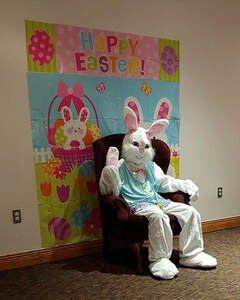 I enjoyed my time at this event. The event was well planned-out, super-affordable, with a nice diversity of vendors. There were three book tables (mine and two others), spaced well throughout the room, which worked to everyone's benefit, I think. There was plenty of space for people to walk about without feeling claustrophobic, and nice table neighbors. An added bonus, there was the opportunity for families to bring their children to have photos taken with the Easter Bunny. This event had everything going for it, except there was one major problem... a lack of marketing common sense. The only place I saw any promotion at all was on Facebook, and there wasn't very much of it. I shared whenever I could, but the organizers should have done more. I'm a member of LOTS of online resources to list events in Michigan, and I didn't see this event listed anywhere. The event was held at a very nice German Community Club, the facilities were wonderful, clean, warm, with food available and lots of parking... but not one sign out front to let people driving by know that there was something exciting happening inside. The club is situated in Sterling Heights, off Utica Road, with lots of free parking, and plenty of traffic going by, but no one was turning in because no one knew that we were there! There was an "A" frame sign out front advertising the club's Friday Fish Fry, but no sign advertising this event. The event organizers put a hand-written sign on the front door - but no one could see that from the road. The fact that it was the day before Easter, and a particularly rainy day, didn't help the declining visitors... but certainly, there would have been more people visiting had they known the event was happening. Many vendors were frustrated and went home early - which is never a good sign. I sold some books, some people signed up for my newsletter, and I had a lovely conversation with my table neighbor... but I'm not sure I will attend this event if they host it next year. At least, not unless they promise to do some more promotion. It has lovely potential, but potential doesn't become real without marketing.
0 Comments
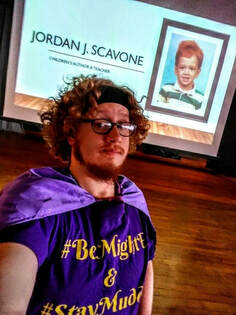 Jordan J. Scavone created his first picture book at about six years old. This first book was titled The Animals Look For Food. It was about animals looking for food. Though not the most well-thought-out (or well written) book of all time, this did plant seeds for the future. After receiving his undergraduate degree in Children's Literature and Theater for the Young from Eastern Michigan University, Jordan began working on his first picture book. This past April Jordan received his M.A. in Children's Literature from EMU. Recently, we had the pleasure of sitting down to chat with Jordan about his writing career. Here is an excerpt from that discussion. PP: What is the first book that made you cry? JS: I don’t know if Of Mice and Men was the first, but I remember it really broke me. I love, love, love that book, and it gets me every time. PP: What is your writing Kryptonite? JS: Editing probably…I’m mildly dyslexic so I miss a lot of little things. Outside of that, actually starting a new book. I can come up with a solid idea, a solid action, but getting that opening line or first paragraph is tough. PP: Do you want each book to stand on its own, or are you trying to build a body of work with connections between each book? JS: Yes. Haha, I do want them to all stand alone (like the cheese!) but, I like to add in little nods almost like Pixar does. Emma (Might-E) and Georgia (The Mud Princess) cameo as classmates in A Girl Named Adam and when people notice, it’s pretty cool. PP: How did publishing your first book change your process of writing? JS: I think it made me more anxious knowing that now that one was out, other things I write could also come out, and I felt like I had to step-up my game. I also felt like I had to really finish things more quickly, as I suddenly had people asking for more books. PP: As a writer, what would you choose as your mascot/avatar/spirit animal? JS: Much like in life, a turtle. I’m a procrastinator, I’m slow, but I could also secretly be a ninja. PP: What did you edit out of your books? JS: My picture books don’t actually lose too much from draft to draft. The YA novel I’m plugging along with right now will probably have a lot cut, but I am an adverb guy. So, I’ll probably need to cut lots of those soon. PP: What one thing would you give up to become a better writer? JS: Does it have to be important? Cause, I’d love to give-up my dyslexia haha. But I guess if it had to be something I cared about... uhm... hotdogs? Yeah... maybe…chocolate milk? No... because that would mean no hot chocolate... this is a hard question. PP: What is your favorite childhood book? JS: I didn’t read too many children’s picture books as a kid (ironic right?) but I remember the first book series I ever actively followed and got the books the day they released was the Deltora Quest series by Emily Rodda. They are a mid-grade fantasy series, and I ate those books up. I still have my childhood copies of the first eight in the initial series. I reread them every few years. PP: What is the most difficult part of your writing process? JS: Focusing on writing. I love video games, I love movies, I love reading, I love just hanging out with my wife and playing lazer tag. I need to get better about sitting down and actually writing. When I’m motivated, I can crank out numbers, but when I am unmotivated... it’s not pretty. PP: What is the easiest part of your writing process? JS: Character design! I love coming up with characters, and fleshing out their personalities, backstories, how they look, etc. PP: When did it dawn on you that you wanted to be a children’s book author? JS: When I was quite young. I have a book from early elementary school, that I still have that I wrote on computer paper, stenciled the pictures, and stapled them all together. It’s awful, I had a 2nd grade girl during a school visit, beg me to read it, then when I got halfway through, they told me “You can stop now.” PP: Who are your biggest literary influences? JS: Sendak is probably number one. I don’t want to write like him stylistically, but I love how long his books are, how he doesn’t write down to kids, and how his stories are just great. He’s one of the all-time greats for a reason. PP: What’s your favorite movie which was based on a book? Why? JS: Probably Lord of the Rings, I can literally watch those movies anytime as many times as possible. I think they did a good job adapting the books, while also making the movies their own thing. You can enjoy both the movies and the books as separate things, but also as the same thing. PP: How long does it take you to finish a book? JS: Reading or writing? Reading, I can generally knock out a typical length YA novel in a day or two. Writing, from start to finish somewhere between eight and twelve months for a picture book. PP: What is that one thing you think readers generally don’t know about children’s books? JS: They aren’t just for kids. Most children’s books have some element of a dual audience to keep the adults reading the books interested. Mine, however, are written for all ages, just using the picture book as more of a lens. I try to write so that everyone can truly enjoy them. PP: Can you tell us about your current projects? JS: The YA novel I am almost done drafting is urban fantasy. Swords, shields, vampires, and blood. It’s a big step away from my picture books, but the early reading responses have been very strong. I’ve had friends who are familiar with my picture books be very surprised that I can write YA. I’m also toying around the idea with a Middle Grade novel and trying to find my next picture book. PP: Any advice you would like to give to aspiring creators/artists? JS: Do the thing. I know it sounds dumb but do the thing. If you fail, that’s fine, sometimes it’s better to fail the first time. I finished NaNoWriMo in 2010 and was so excited I finished that I used CreateSpace to get the book out less than a month after November. It was unedited (because I thought that Word’s spell check was good enough) and ultimately it was trash. It needed so much work, and it was so bad that I stopped writing novels for a long time. In hindsight, I’m glad that that happened, if it didn’t I would never have improved, and I would never have written Might-E and I wouldn’t have three children’s books out. 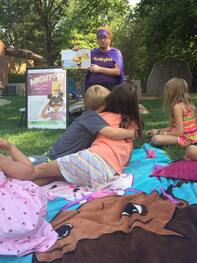 Visit Jordan J. Scavone and Learn More about His Books at These Upcoming Events: May 11, 2019: 2nd Annual Morse Elementary Book Bazaar, Troy, MI June 22, 2019: The Pages Promotions Summer Indie Author Book Fest at The Hilton Garden Inn, Troy, MI July 27, 2019: Sterlingfest in Sterling Heights, MI October 20, 2019: Leon & LuLu's Books & Authors; Clawson, MI 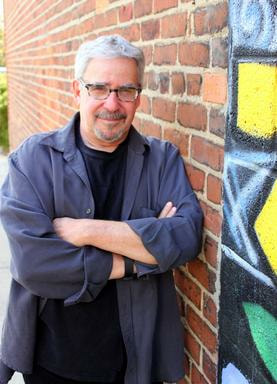 Donald Levin is an award-winning fiction writer and poet, and the author of the six-book Martin Pruess Mystery Series. He is also the author of The House of Grins (1992), a novel; and two books of poetry, In Praise of Old Photographs (2005) and New Year's Tangerine (2007). His poetry and fiction have appeared in numerous print and e-journals. The sixth book in the mystery series, Cold Dark Lies, is enjoying a launch event on May 11, 2019 in Hazel Park, Michigan. We recently had the pleasure to sit down with Donald and discuss his writing career. Here is an excerpt of that discussion. PP: What literary pilgrimages, if any, have you gone on? DL: I’ve visited many writers’ haunts, including Joyce’s Dublin, the Bronte parsonage in Haworth, Emily Dickinson’s Amherst, Jane Austen’s homes in Chawton and Bath, the Charles Dickens and Thomas Hardy homes in England, Virginia Woolf’s London, and New York City watering holes for famous writers. Without a doubt the one that most moved me most was the Bronte parsonage; I was tremendously touched by my visit to the home of the three great woman writers and seeing how they developed as artists totally isolated as they were in the distant, desolate home they shared with their stern father and ne’er-do-well brother. They persisted. PP: Do you want each book to stand on its own, or are you trying to build a body of work with connections between each book? DL: In my current series, I want each book to stand on its own while being part of a larger body of work with an overarching narrative arc. PP: How did publishing your first book change your process of writing? DL: Long before I published my first book, I had been a professional writer for over twenty years working on virtually every kind of communications project in health care, public health, business, advertising, and public relations. So my writing habits were well-established by the time I began publishing poetry and fiction. I already knew to approach writing with a serious, workman-like attitude. When I saw my first book published, it was more proof to me that writing depends on hard work and dedication much more than inspiration. PP: What did you edit out of your books? DL: Anything that doesn’t move the story along or contribute to the development and understanding of my characters. Also anything where the writing calls attention to itself. PP: What one thing would you give up to become a better writer? DL: At my age, I think I’ve already given up everything there was to give up! PP: What is your favorite childhood book? DL: I read voraciously as a boy. My two best places were the Sherwood Forest Library in Detroit and the library at my elementary school, Bagley School in Detroit. I had too many favorites to mention an individual book, but I remember loving reading the Tom Corbett series, Jules Verne, and H.G. Wells. PP: What is the most difficult part of your writing process? DL: What’s hardest for me are the issues that arise when considering the question of what I’m going to do with a piece of writing once I’ve finished with it. That means facing the big world of publication and (seemingly more often) rejection, where everybody’s a critic and nothing’s ever good enough. The joy for me is always in the writing itself, in entering into the lives and worlds of my characters, which may or may not be a reflection of the world we actually live in—where language and structure and movement are my sole preoccupations. I’ve found that thinking about what will happen to a book or poem after it’s done (Will anybody read it? Will anybody like it? Will anybody buy it?) totally kills my creative impulses... it ruins the joyful experience of writing and makes me not want to write. Which removes a significant source of pleasure from life. PP: What is the easiest part of your writing process? DL: Honestly, I love everything about writing, from the sheer neuromuscular act of forming words on paper (or typing them on a screen) through the crafting and recrafting of words, sentences, paragraphs, scenes, and chapters as a book unfolds itself to me as I write it, to holding it in my hand as a physical object when it’s published. So every part of it is pleasurable and therefore easy in its own way. PP: How long, on average, does it take you to write a book? DL: Nowadays it takes a year from conception to publication... typically three to finish the first draft, another seven months for revisions and rewrites, and a couple of months to bring the manuscript to publication. PP: A common misconception entwined with authors is that they are socially inept, how true is that? DL: The writers I’ve known tend to be introverts who live in their heads (read: imaginations) more than most people. That’s not social ineptitude, it’s having different priorities. I also know many writers who are outgoing and extremely social; I’m not one of those! PP: Who are your biggest literary influences? DL: Again, in my life I’ve read widely and deeply, and like most writers I’ve been influenced to some degree by everyone I’ve ever read. That said, my biggest poetic influences are Philip Levine and Amy Clampitt. The crime novelists who have most influenced me are Ross Macdonald, Henning Mankell, Don Winslow, and Maj Sjowall and Per Wahloo. PP: How did it feel when your first book got published? How did you celebrate? DL: I felt a sense of accomplishment; then I celebrated by setting to work on the next one. PP: Can you tell us about your current projects? DL: My latest project is the sixth novel in the Martin Preuss mystery series, Cold Dark Lies, just published and scheduled for its launch on May 11th. I have several more planned in the series, but I’m not sure whether that will be my next project or whether I will write a stand-alone book. PP: Any advice you would like to give to aspiring creators/artists? DL: For writers, I’d say: Read everything you can get your hands on, and read it the way writers read: By analyzing how the piece is put together, how it achieves its effects, how it moves, how the scenes open and close and move, how the sentences or lines flow, what the word choice is... look at everything. Read good stuff and bad stuff and figure out what distinguishes them. Read stuff you like and stuff you hate, and figure out why you like what you like, and why you hate what you hate. If you’re going to be a writer, you’re going to join a literary conversation that’s been going on for hundreds of years; you need to know what’s been said so you can join it intelligently. And then write. Don’t think about how nice it would be to write, don’t plan to write someday, don’t tell yourself you’d write if you weren’t so busy—just write. Make time in your days, however filled or busy they are. Try to remember that we’re all terrible when we start out; the people who get better are the ones who stick with it. 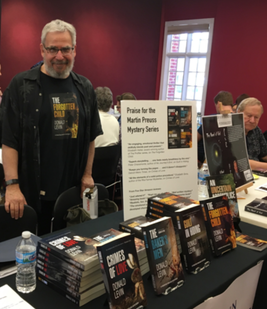 Visit Donald Levin and Learn More About His Books at These Upcoming Events: May 4, 2019: The Plymouth Library Book Fair, Plymouth, MI April 20, 2019: The Carpathia Club Easter Festival, Sterling Heights, MI May 11, 2019: Cold Dark Lies book launch at the Color & Ink Studio in Hazel Park, MI May 18, 2019: Rochester Heritage Days, Rochester, MI June 22, 2019: The Page Promotions Summer Indie Author Book Fest at the Hilton Garden Inn, Troy, MI July 13, 2019: Fenton’s Open Book bookstore at the Fenton Art Walk, Fenton, MI July 27, 2019: Sterlingfest in Sterling Heights, MI 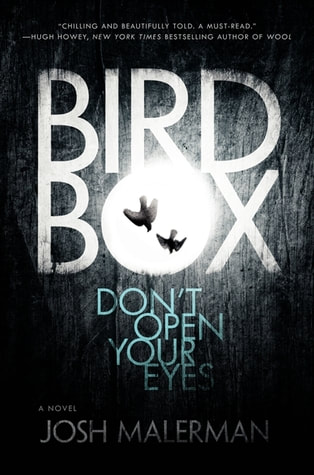 Okay folks, I know I'm seriously late coming to this party... but I'm glad I made it! The well on this one runs deep! I was pleasantly surprised by this book that has been receiving so much hype. In my experience, books that have a "clan" following don't always meet with the expectations set before them. I'm pleased that this was not the case with "Bird Box". The author does a superb job of weaving in and out of the story, past to present, and back again. By the end of the story, I felt as if I really knew these characters and could feel their pain, frustration, fear, and tenacity. By the last page, they were real to me... as real as the creature... which I'll get to in a minute. Malerman does an excellent job with what I call "sensorial" writing. Every little part of how we engage in experience was utilized well on these pages. Every sense... sight, and the lack of it; sound, especially sound; and touch were all heightened because due to his spectacular use of vocabulary, and in some places, the lack of it, as in his decision regarding naming the children. The tears of the characters could be felt on my cheeks, the trembling heartbeat could be felt in my chest. This was a thriller that scared me in new ways. The ending held a punch I wasn't expecting, and it resonated deep within my chest cavity when I finally was able to visualize the future for them all. My only frustration with this book, and I'm sure it is shared by many readers... and I'm absolutely certain our frustration makes the author quite pleased... the creatures. I needed more, wanted more, expected more, especially at the end. The fact that these details were hidden from us was tantalizing and exasperating all at once. And it made for GREAT storytelling! After reading the book, I sat down to watch the film on Netflix. I must say, I'm very happy that I waited until after I read the book, and didn't fall into the film's advertising ploy. It's been my experience that most books are far better than their film counterparts, and this one is no exception. I understand why they had to present it in the way that they did, but the dramatic lack of details that the book so richly delivered, left me irritated. The cast did a fabulous job bringing Malerman's work to screen, but I think that the time constraints of the film industry made it impossible for the depth of this story to truly be told. So, if you haven't already seen the film, don't... at least not until you read the book first. You'll be happy you waited. I've heard rumors of a sequel... I hope that Malerman chooses to write a prequel, instead. There's so much about the creatures that I'd like to know, along with the backstory of how it all began. I think there's a super-creepy origin story waiting to be told here, and I hope he brings it to us. A sequel would be nice, too... the story waiting to be told of what comes next would, I'm sure, be just as tantalizing. But personally, I'm more interested in the history of it all right now. :-) Thank you, Mr. Malerman. I look forward to discovering the rest of your work. 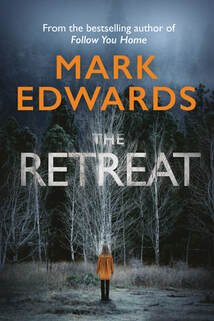 This was an interesting and quick read. I was drawn to the book because the back matter told of a story about a writer's retreat in Wales. Books about books, libraries, or the writing process in general are a tremendous magnet for me, and this is one was irresistible. A mystery/thriller set in a spooky small town with a history of myths, legends, and missing children, this was an intriguing adventure that spanned just over two years, with connections to decades before. The characters were interesting and engaging, and the story was multi-layered. There were a couple points during the reading that I thought I had a firm grasp on what was happening. Then another layer showed itself, and I was again on the quest to figure out how it all fit together. The author created a delightful literary puzzle. The landscape of the book is varied and visual. I easily felt as if I was a part of the story, deep inside the community. There were several points in the book where there was a concentration on sound - a sense that many writers often omit - and it was handled beautifully. I heard the leaves rustle, the ghost sing, the crack of getting hit on the head. The sensorial writing in this story is abundant and a wonderful surprise. The rich combination of place, time, and character made this a delightfully spooky read. The only negative comment I have about this book is that it's more a spooky whodunit story, and less a story about writers... but that, I'm sure, is a criticism only I would report. Call it a personal peccadillo. I listened to the audiobook version, and was extremely pleased with the narrator, and his ability to separate the characters without any distracting over-the-top voice changes. The book was difficult to put down. 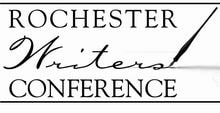 This is by far my favorite writing conference. Each year that I attend I am never disappointed with the high caliber of organization, key note speakers, and break-out sessions. This year was no different... except that this year, I was granted the honor of being a presenter and panelist! I was so very pleased to be selected to present a workshop on "Building An Indie Publishing Company". I appreciate everyone who attended, and I am grateful for your kindness. This conference focused on the nuances of Self or Independent Publishing. There's a lot of information out there, and Conference Leader, Michael Dwyer, was able to pull some of the best minds in the Indie Publishing world together to empty their brains for those who wanted to learn more. I was by far, not the strongest speaker, but I was pleased to share the day with Mel Corrigan, Sylvia Hubbard, Lev Raphael, Coleen Gleason, Weam Namou, and a fantastic collection of Michigan's Indie Authors. Presentations included "Why I'm A Self-Published Author", Publishing from Indie Author to International Distribution"; "Is Self-Publishing Right For You", "Self-Publishing: The Numbers", and much more. The day was full of fun, encouragement, information, and creative inspiration. More than reasonably priced at $160, with lunch included, this is one of the best-value conferences I've ever attended. Usually, after an event like this, I'm pleased if I go home with 10% of useful information. With Rochester Writers', I always go home with 90% or more useful information. If you're an author, or an aspiring author, I highly recommend that you attend. Held twice per year, once in Spring and again in Autumn (October 19, 2019, this year) at Oakland University, you'll walk away knowing more than you did before, and surged with energy to finish your book or perhaps write another one! A Huge Thank You goes out to Michael Dwyer and Sonya Julie for continuing to present such a valuable resource to Michigan Writers! Learn more about Rochester Writers at their website: www.RochesterWriters.com |
WelcomeYou'll find some interesting stuff here... some Op Eds, some Information, Book Reviews, and More. Poke around the categories and see what ruffles your feathers... in a good way! Archives
July 2024
Categories
All
|
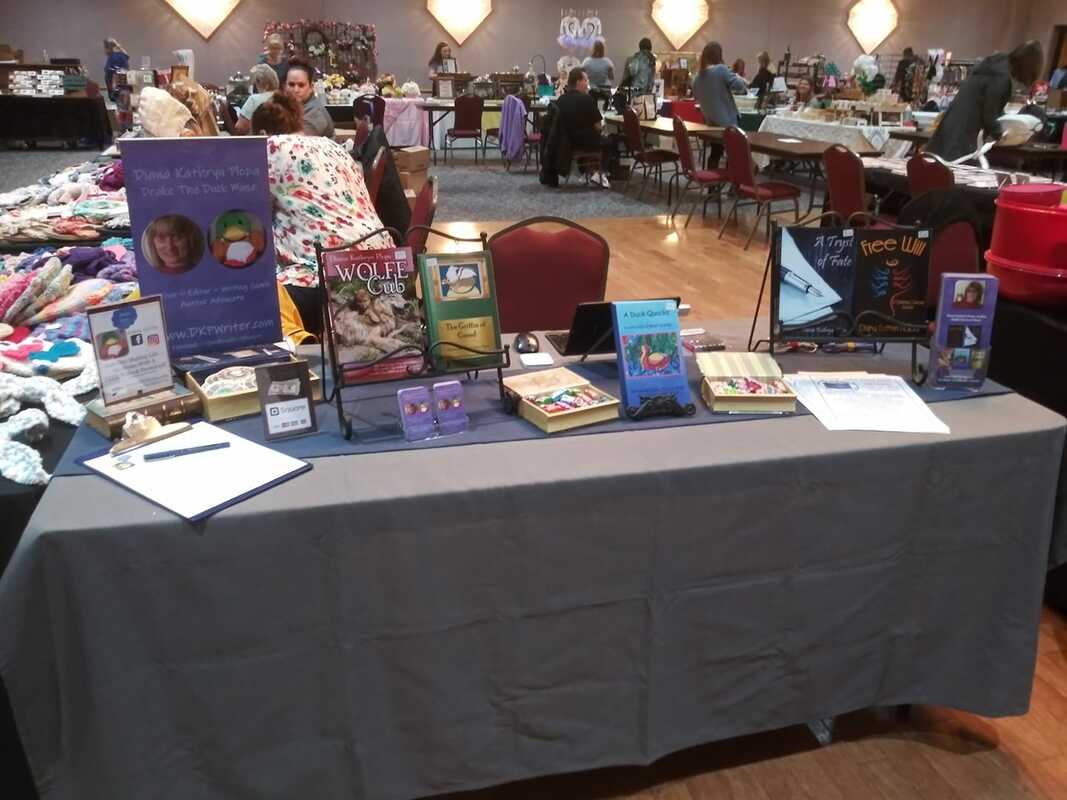


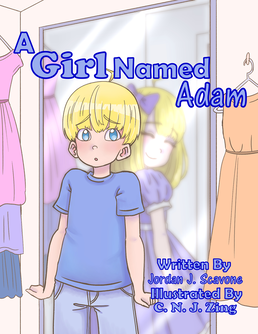
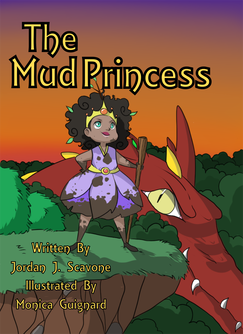
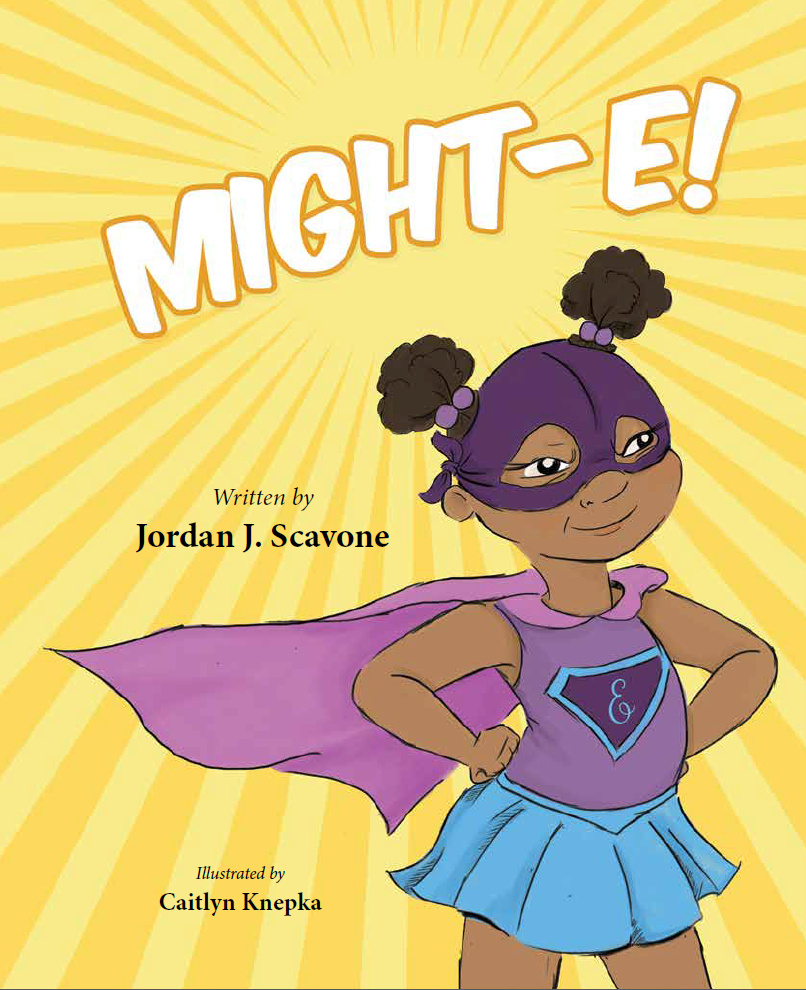
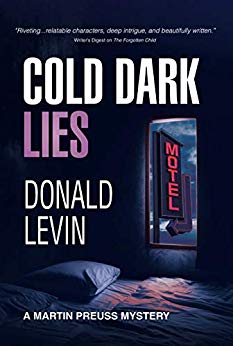
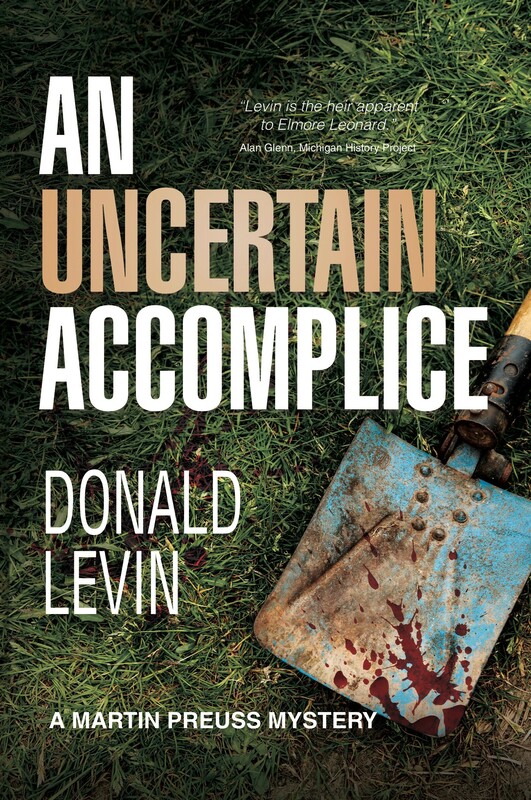
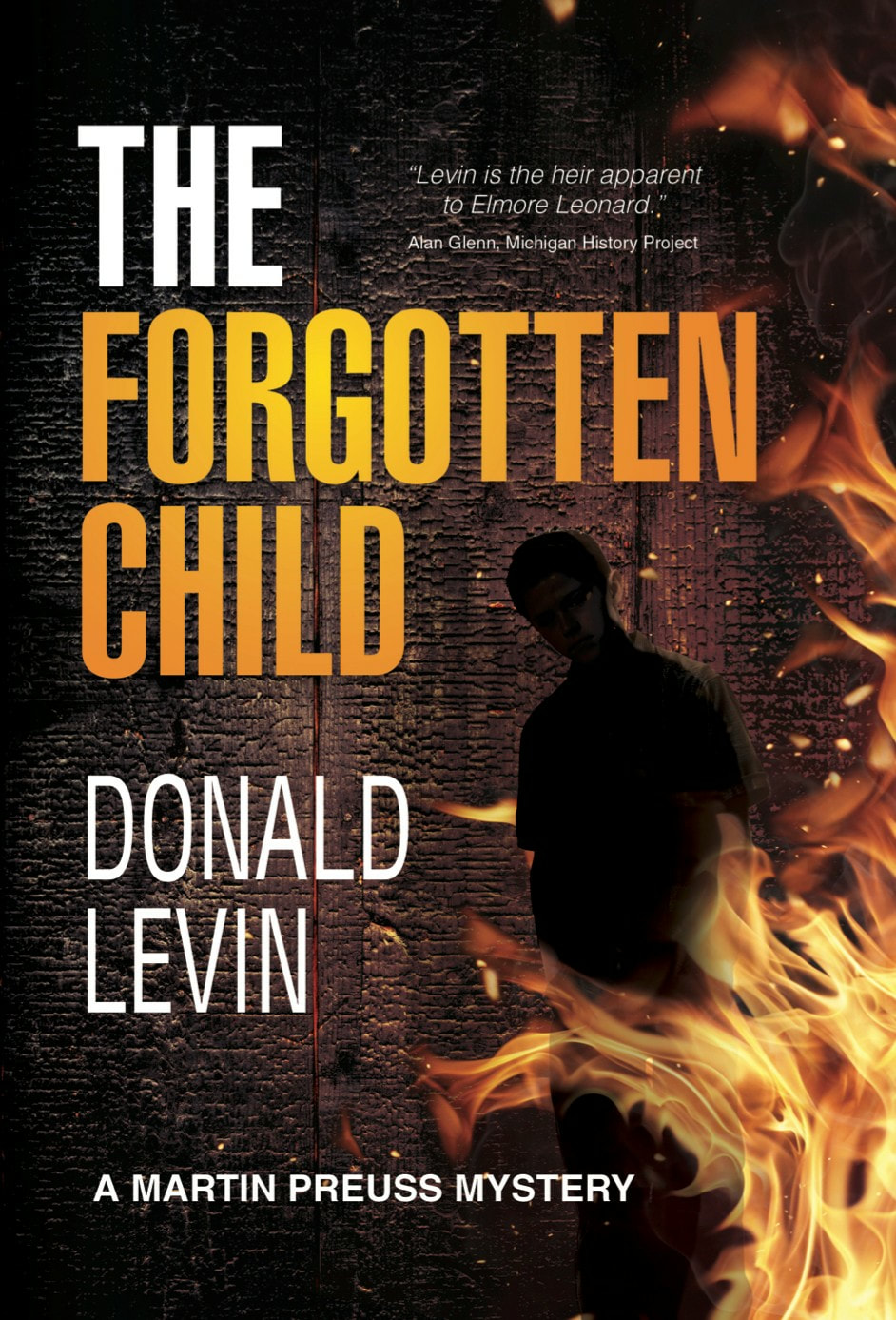
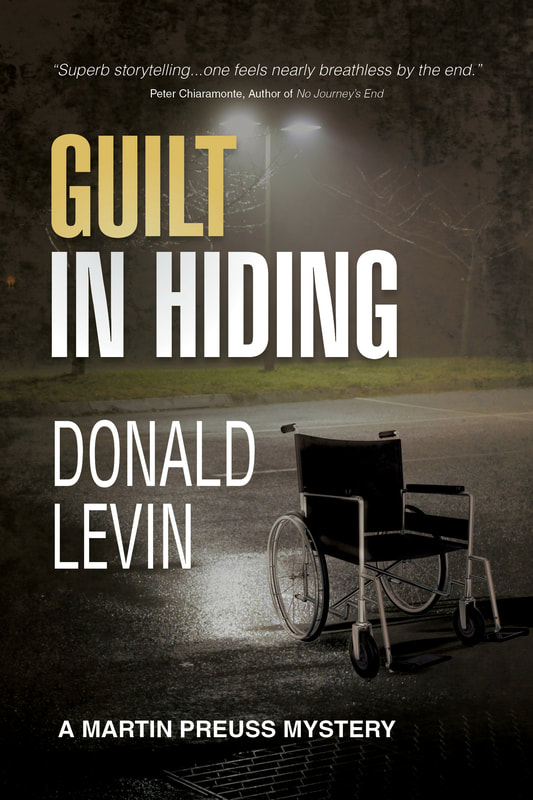
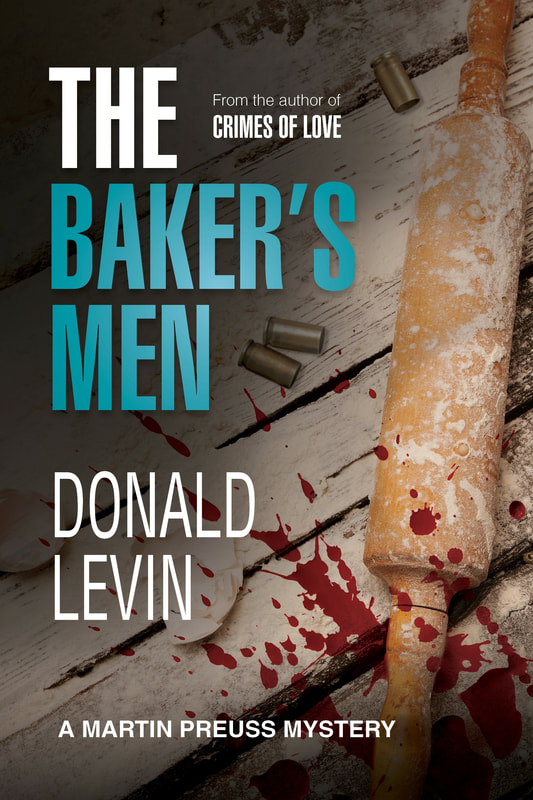
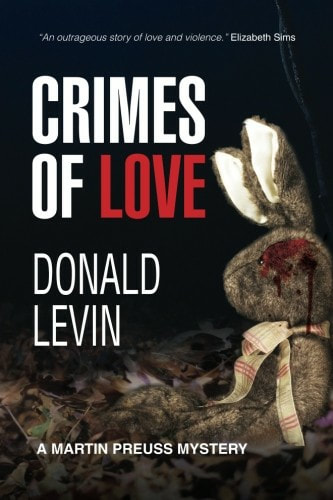
 RSS Feed
RSS Feed